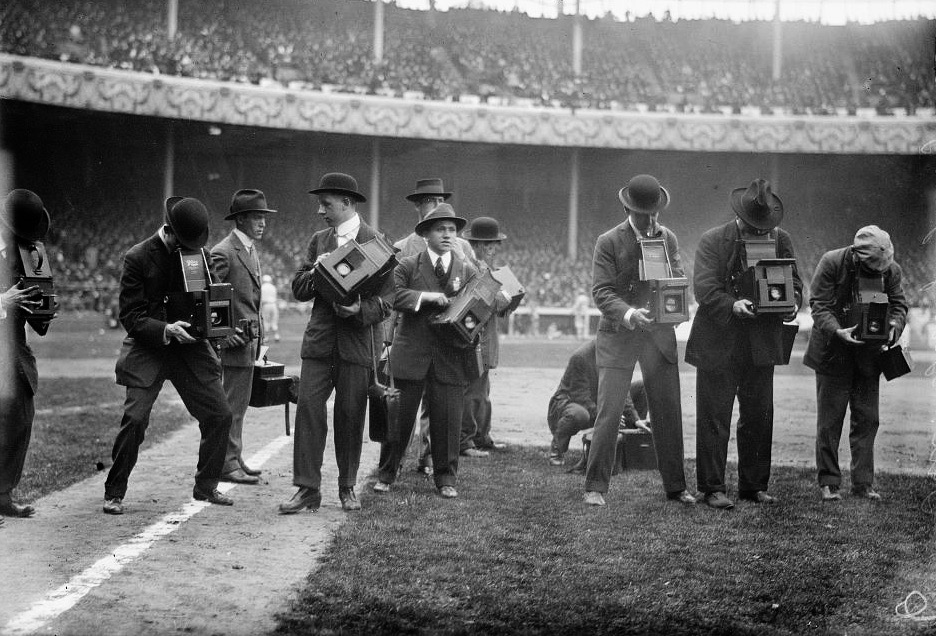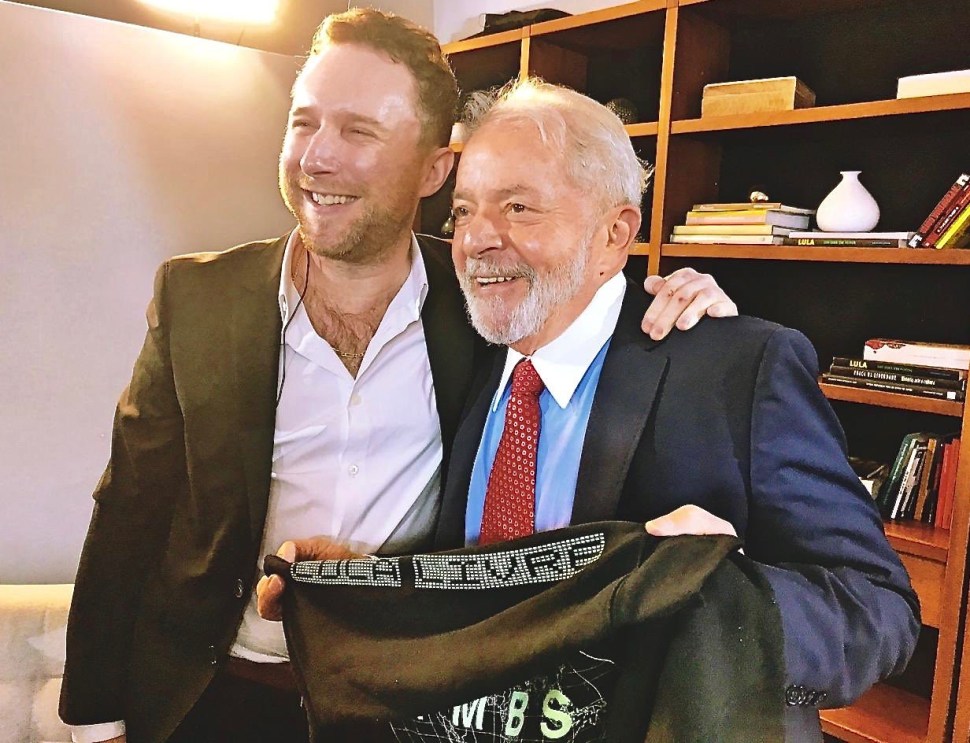New York got a lot less intelligent today.
Brooklynite Michael J. Brooks, host of The Michael Brooks Show and cohost of The Majority Report with Sam Seder, just died. He was 36 years old.
According to his sister Lisha, he was struck by a sudden blood clot in his throat. “We don’t know what caused it,” she explained on The Majority Report today. “They don’t think it was Covid-related. Nothing weird happened, there was no suicide. It was just a horrible, unexpected, terrible thing.”
I discovered Mr. Brooks’ work eight or nine months ago, and have been following him ever since. Actually, to be more precise, I’ve been following along with him. You see, what made him unique in the world of political discourse was his thirst to learn. And in that pursuit, he invited his listeners to join him on the journey. With his show, in particular, that journey went everywhere. Just a cursory pass through some recent episodes reveals a variety of topics and vanguard of guests. There was a program on “The Return of War Communism” with Slavoj Zizek, for example; one on “The Present Moment and Bill de Blasio’s Budget” with Noam Chomsky; and another providing “Quarantine Wisdom” with Cornel West.
But my favorite shows were the ones he live-streamed by himself on the weekends. I typically listened to them after the fact on Sunday nights, and was digesting his latest musings on “Integral Stream Theory” just hours before learning of his death.
Mr. Brooks’ speciality was framing today’s occurrences in the context of history. As other New York thinkers like Penny Arcade, Sarah Schulman, and Fran Lebowitz have professed, and French theorist Guy Debord first postulated in The Society of the Spectacle (1967), we’re living in an era where events simply scroll past us on the timelines of various social media. Neither their import nor impact are considered. They’re just signs of something, copies of the original that, left uninvestigated, appear new. And without understanding what something signifies, we’re at a loss to negotiate or comprehend the moment. Divorced from historical context then, we’re rendered impotent sieves trying to consume as many events as we can and react as often as possible to never-ending stimuli.
To combat the hopelessness, Mr. Brooks challenged the spectacle operating in today’s political world. Specifically, he called for an end to reactionary thinking and the passive acceptance of popular tropes. Working from the Left-Wing of the political spectrum, he advised countering the Right with long-term strategic thinking and rebuttals to policy grounded in the lessons of history. He articulated it like this:
I want the Left to have [Niccolo] Machiavelli so we can have the strategy, the ruthlessness, the clarity to actually win these battles [with the Right-Wing]. And be ruthless with institutions.
And then I want us to learn to be really kind to each other, welcoming of a broad set, and actually have a movement that has the capacity to do that.
But what does it mean to be “Left-Wing” anyway? For Mr. Brooks, it was simple, as if the concept behind Gene Roddenberry’s Star Trek and Star Trek: The Next Generation universe had come to fruition:
The impulse behind Left-Wing politics is the desire to create a world in which our lives aren’t dominated by economic concerns — where people have the free time and energy… to pursue their own vision of the good life… free from the workplace tyranny that leaves them too exhausted at the end of every day to do anything but watch Netflix, mindlessly skim through their social media feeds, or, God forbid, game (and that, for many, is the best case scenario).
How I could hear more! This was taken from the book he published earlier this year — Against the Web: A Cosmopolitan Answer to the New Right — the last thing he’ll ever compose.
It’s a shame. A senseless fucked-up shame.
*****
I never had the opportunity to meet Mr. Brooks, so let me rely on a few who did.
Sam Seder, his boss on The Majority Report, remembered his sense of humor, particularly his impressions of Nelson Mandela and Barack Obama:
What was unique about Michael was not just his intelligence and insight into politics, particularly foreign politics, but his ability to do genuinely brilliant political comedy. I need less than one hand to count how many people I’ve come across who had Michael’s skill in crafting a funny impression or character that was not only a vehicle for political satire, but satirical in its essence. It was an amazing and genuinely unique talent that made coming into work each day for me fun.
Nomiki Konst, a contributor to The Majority Report, recalled how much of an ally he was to everyone on the Left:
On cable news, everybody competes with each other. What I really love about our little universe [of Left-Wing media outlets] is that we’re all friends and family, and I think Michael was sort of like the center of that universe.
Bhaskar Sunkara, frequent collaborator and publisher of Jacobian Magazine, summarized his mission:
He wasn’t trying to be an ‘influencer,’ his goal was building something bigger than himself and fighting for working people.
And Briahna Joy Gray, Senator Bernie Sanders’ National Press Secretary, reflected on his skills as a journalist:
We’re each other’s first and last line of defense against the gaslighting and the abdication of consciousness that has become the norm in the mainstream press…. And Michael Brooks was one of our best, most formidable comrades.
But Matt Lech, producer of Brooks’ show, said his boss would have most appreciated the comments from two of his heroes. This from Cornel West:
I’m still in shock from the sudden death of my dear brother and comrade Michael Brooks!!
And this from Lula — as in Luiz Inácio Lula da Silva, the former president of Brazil and one-time political prisoner — who wrote on Twitter
This year I met this young American, a journalist, who turned out to be a friend, who I thought that we would meet again. How is it possible? My heart and prayers go to his family and friends. May his passion for social justice be remembered and inspire people around the world.
And Mr. Brooks had just started to think more globally.
The other night, during his live-stream on “Integral Stream Theory,” he wondered:
What does it actually mean to be truly globalist to the extent we can — local, national, international, simultaneously east, west, north, south — but from a place of growth and empathy?
It was complex question, one that would require rigorous thought and the understanding of historical complexities to answer — in other words, all the things that appealed to him. So he gave it a try:
This is where the questions of consciousness come in, the questions of cultivating empathy, cultivating compassion, and cultivating awareness — the complete antithesis of [today’s] social media modes. Long-term thinking, compassion, seeing complexity, comfort with oneself, solitude, the opposite of instant gratification, the attempt to constantly humanize and not de-humanize your fellow humans. These are all completely countervailing forces to the market technologic that subsumes all of us today.
Good night, Mr. Brooks, may you rest in power.
Credits:
(1) Photo of Michael Brooks by Alyona Minkovski. March 4, 2020.
Courtesy of Mr. Brooks’ Instagram.
His caption read: “Thinking about how we need to get straight, ruthless and way more kind, that’s the paradox.”
(2) Mr. Brooks during his interview with Luiz Inácio “Lula” da Silva, former President of Brazil (2003-2010). January 15, 2020.
Courtesy of Mr. Brooks’ Twitter.


